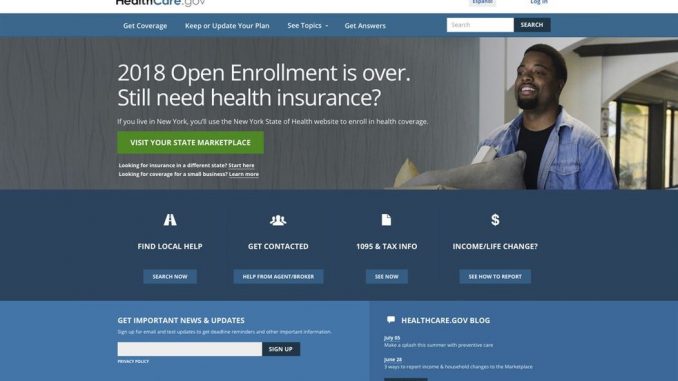
Published November 9, 2025
In a bold move this November 2025, former President Donald Trump urged Congress to redirect funds from the Affordable Care Act (ACA) directly to American citizens, bypassing insurance companies entirely. Framing the proposal as a way to empower individuals while cutting out “big, bad money-sucking” insurers, Trump argued that this approach would allow people to purchase better healthcare and retain extra money for their personal needs.
Trump characterized the current ACA system as inefficient and overly bureaucratic, emphasizing that funds currently flow through insurers, inflating costs without guaranteeing better coverage. “I am recommending to Senate Republicans that the Hundreds of Billions of Dollars currently being sent to money-sucking Insurance Companies … BE SENT DIRECTLY TO THE PEOPLE,” Trump tweeted, highlighting his focus on direct financial empowerment.
The Proposal in Detail
Trump’s plan calls for redirecting hundreds of billions of dollars currently allocated to insurers under the ACA to individual Americans. He suggested that, instead of funding insurance companies, citizens could receive cash or credits to purchase healthcare coverage of their choice.
While specific mechanisms were not outlined, the proposal reflects a voucher-style approach—an idea that has surfaced in conservative policy circles for years. Proponents argue it would:
-
Increase consumer choice in healthcare.
-
Promote competition among insurers, potentially driving down costs.
-
Reduce the government’s administrative role, cutting red tape and overhead.
However, critics note that without careful structuring, such payments could fail to cover costs for higher-risk individuals or lead to market instability in the insurance sector.
Political Context
Trump’s proposal comes amid a partial government shutdown over funding disputes. Democrats have pushed to continue ACA subsidies for millions of Americans, while many Republicans insist on passing a federal funding bill separately from any healthcare reforms. This has created a tense standoff, with the potential for policy deadlock if both sides refuse to compromise.
Within the Republican Party, perspectives vary. Some lawmakers favor a complete repeal of the ACA, while others advocate for temporary extensions of subsidies until a new system is implemented. Trump’s direct-payment approach represents a more radical, individual-focused alternative, appealing to conservative voters who prioritize market-oriented solutions over bureaucratic control.
Broader Context of Healthcare Reform
The ACA, signed into law in 2010, aimed to expand healthcare coverage and protect individuals with pre-existing conditions. It provides federal subsidies to help Americans afford insurance through marketplace plans. Critics argue that the law has led to rising premiums and limited insurer competition, while supporters highlight that it has provided coverage to millions who otherwise would be uninsured.
Trump’s call for redirecting ACA funds aligns with long-standing conservative critiques of the law: that it overly empowers insurers and government agencies rather than individuals. By proposing direct payments, Trump suggests a shift toward consumer-driven healthcare, where citizens make their own choices and bear more responsibility for their coverage decisions.
Public and Lawmaker Reaction
Initial responses from lawmakers have been mixed. Some Republicans have praised the idea as a bold step toward reform, while others have expressed caution, citing concerns about funding gaps and coverage for vulnerable populations. Democrats have largely opposed the concept, emphasizing that dismantling ACA subsidies could leave millions without affordable healthcare access.
Analysts note that while Trump’s proposal is high-profile, legislative hurdles remain significant. Any major changes to the ACA would require congressional approval and careful design to avoid unintended consequences for millions of Americans currently covered by the law.
Key Quote
“I am recommending to Senate Republicans that the Hundreds of Billions of Dollars currently being sent to money-sucking Insurance Companies … BE SENT DIRECTLY TO THE PEOPLE SO THAT THEY CAN PURCHASE THEIR OWN, MUCH BETTER, HEALTHCARE, and have money left over.”
— Donald Trump
 Implications of Trump’s proposal to send ACA funds directly to taxpayers:
Implications of Trump’s proposal to send ACA funds directly to taxpayers:
1. Market-Oriented Approach
-
Supports free-market principles by reducing government control over insurance markets.
-
Individuals get cash to choose their own plans, potentially fostering competition among insurers.
-
Appeals to right-leaning voters who prefer less bureaucratic intervention in healthcare.
2. Taxpayer Empowerment
-
Direct payments align with individual choice and responsibility, a core right-leaning value.
-
Shifts the focus from government-administered subsidies to personal financial control over healthcare spending.
3. Anti-Insurance Company Narrative
-
By framing insurers as “big, bad money-sucking companies,” the proposal taps into a populist, anti-corporate stance common in right-leaning rhetoric.
-
Positions Trump as fighting corporate power while supporting the average American — a political win with the base.
4. Limited Government Philosophy
-
Could reduce the federal government’s role in managing healthcare programs, which aligns with smaller-government ideals.
-
May appeal to conservative lawmakers who favor shrinking the ACA or repealing parts of it.
5. Political Mobilization
-
Messaging may energize the Republican base, showing commitment to reforming or ending Obamacare.
-
Serves as a policy differentiator for right-leaning voters ahead of 2026 midterms or future elections.
 Overall Takeaway:
Overall Takeaway:
Trump’s proposal to redirect ACA funds directly to Americans embodies core right-leaning principles: individual empowerment, free-market choice, and limited government interference. By bypassing insurers and putting financial control in the hands of citizens, the plan reinforces personal responsibility while challenging entrenched corporate influence. Politically, it positions the Republican Party as a champion of practical reform over bureaucratic mandates, energizing the base and signaling a commitment to reshaping healthcare in a way that rewards choice, competition, and fiscal prudence.
SOURCES: REDSTATE – Healthcare Overhaul: Trump Now Urging Congress to Send Obamacare Money Directly to Taxpayers
THE TRIBUNE – “Take from the BIG, BAD insurance companies, give it to the people,” Trump urges Senate Republicans to abolish Obamacare
MONEY CONTROL – Amid shutdown, Trump urges lawmakers to give healthcare money ‘directly to the people’





Be the first to comment